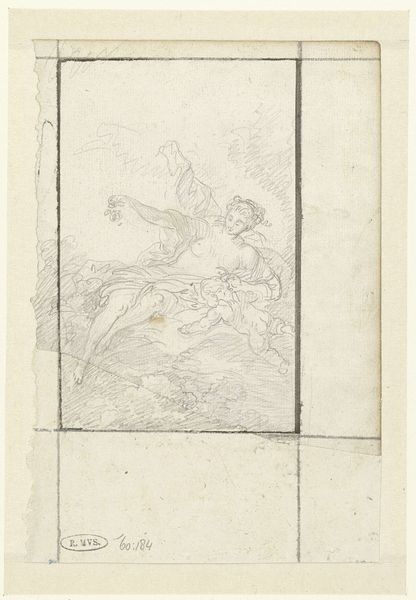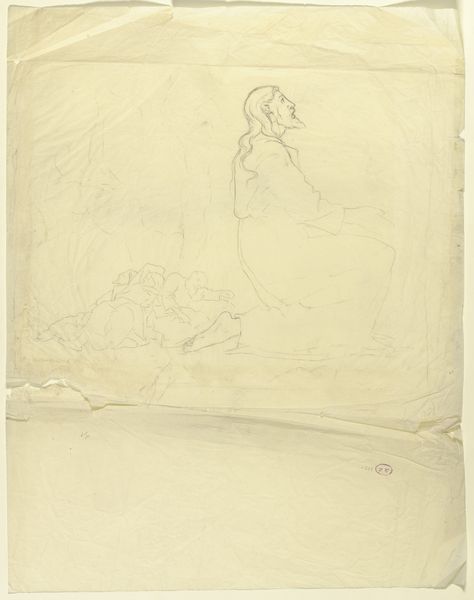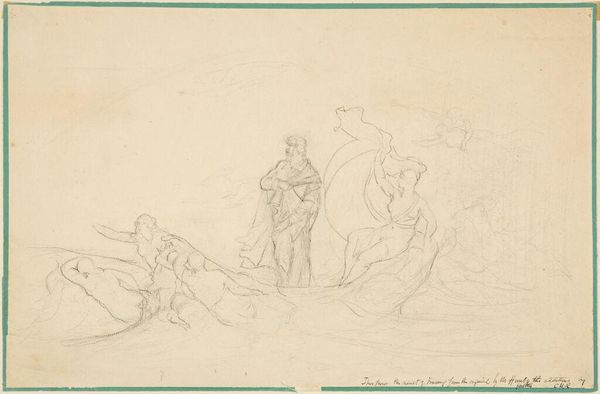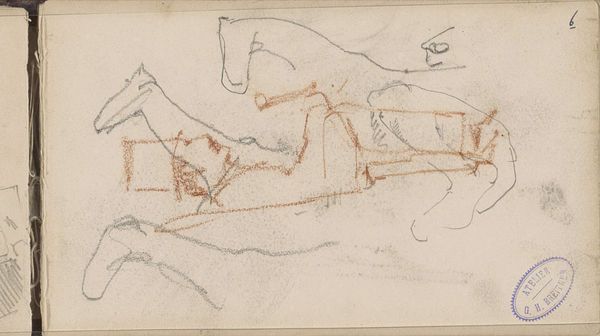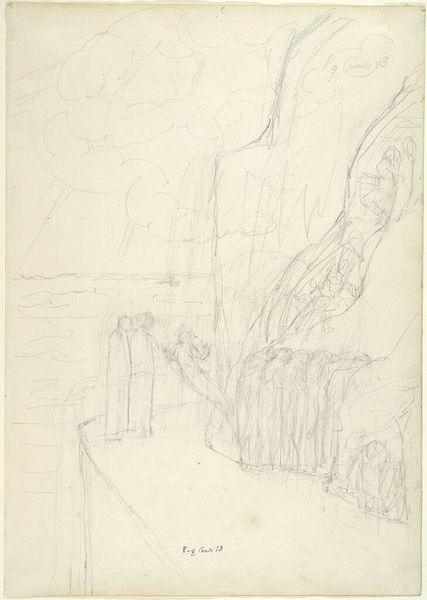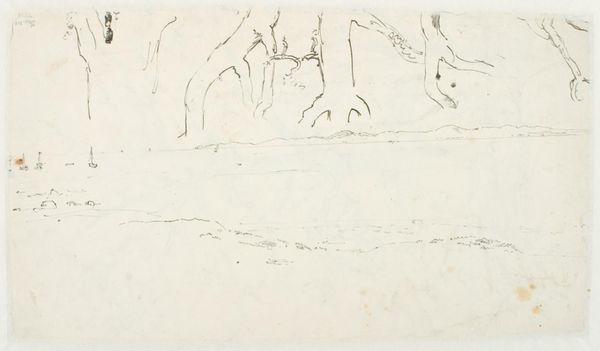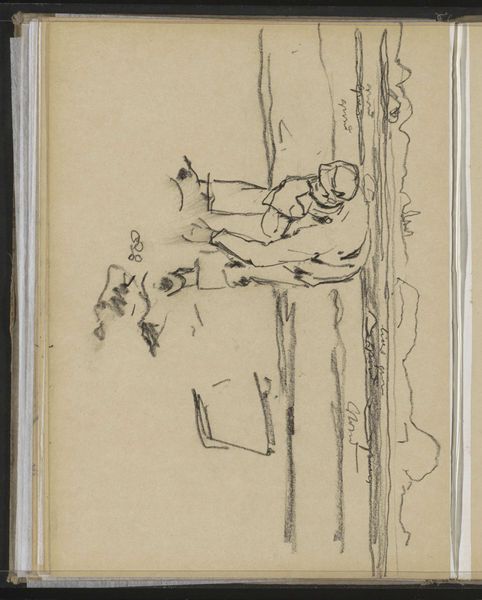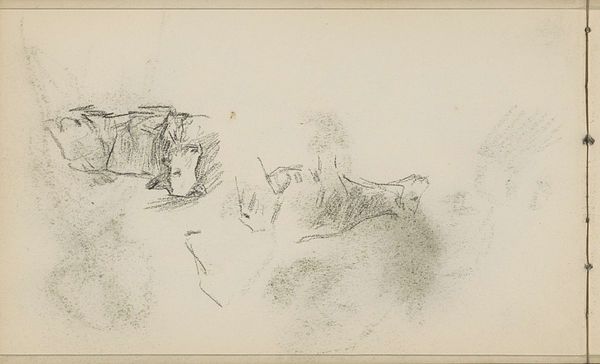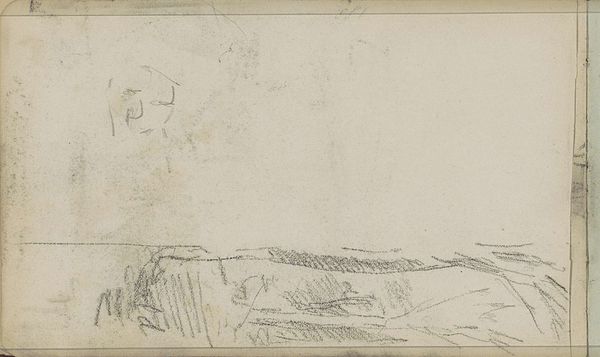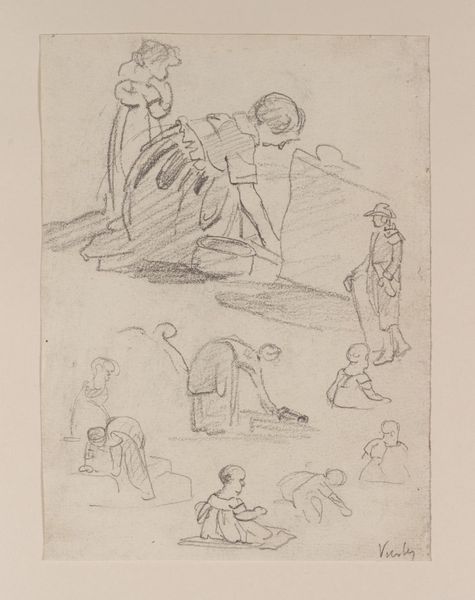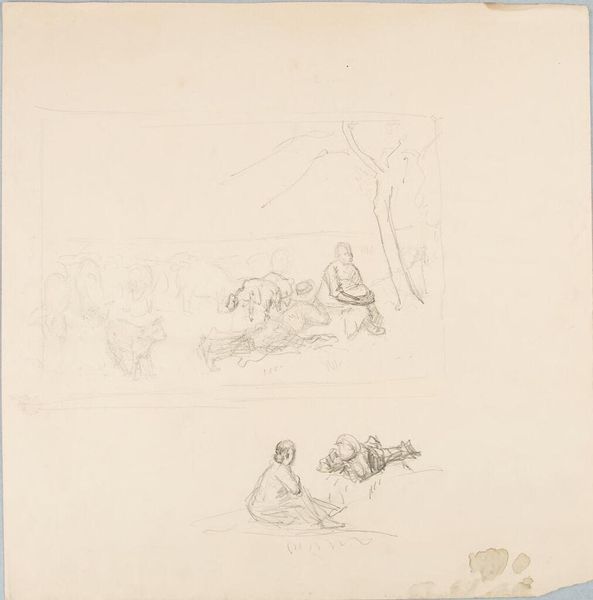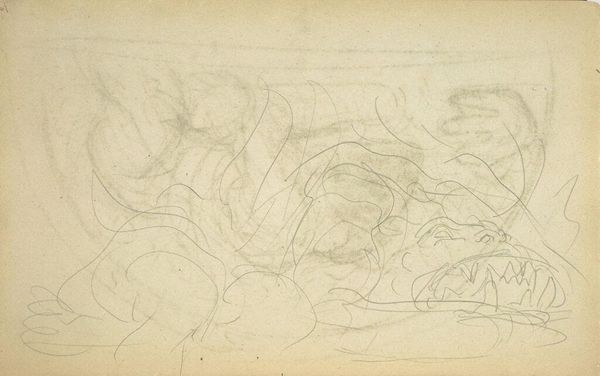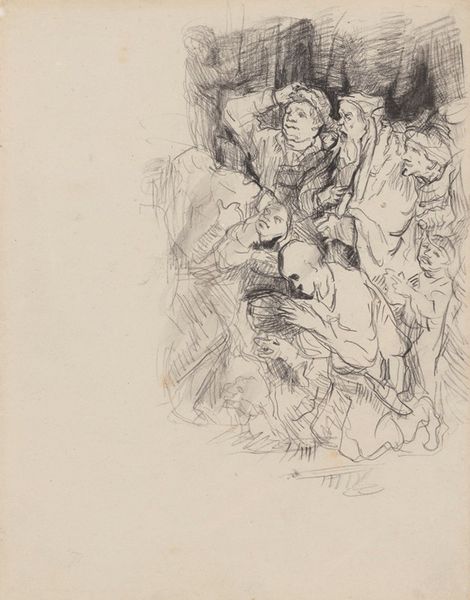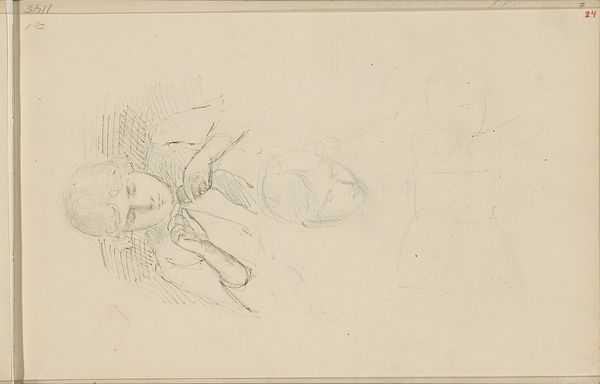
Dimensions: image: 187 x 129 mm
Copyright: CC-BY-NC-ND 4.0 DEED, Photo: Tate
Editor: So, this is John Flaxman's "Malebolge," and even though the date is unavailable, he lived in the late 1700s and early 1800s. It’s a stark drawing, almost like a blueprint for a darker world. How do you interpret this work? Curator: I notice the stark lines and minimal shading, drawing attention to the process of image-making itself. Consider the material constraints of printmaking in Flaxman's time. How might the economics of reproduction influence the dissemination and reception of such images, shaping the very consumption of this vision of hell? Editor: That's interesting! I was just focused on the figures and their placement. Curator: But even the figures are presented as though mass-produced, reduced to outlines. Is Flaxman critiquing the industrialization of labor and its dehumanizing effects by showing us Hell as a kind of factory floor, churning out suffering? Editor: I hadn't considered the industrial connection. So much to think about! Curator: Precisely! By looking at the means of production, we can unlock layers of meaning that might otherwise remain hidden.
